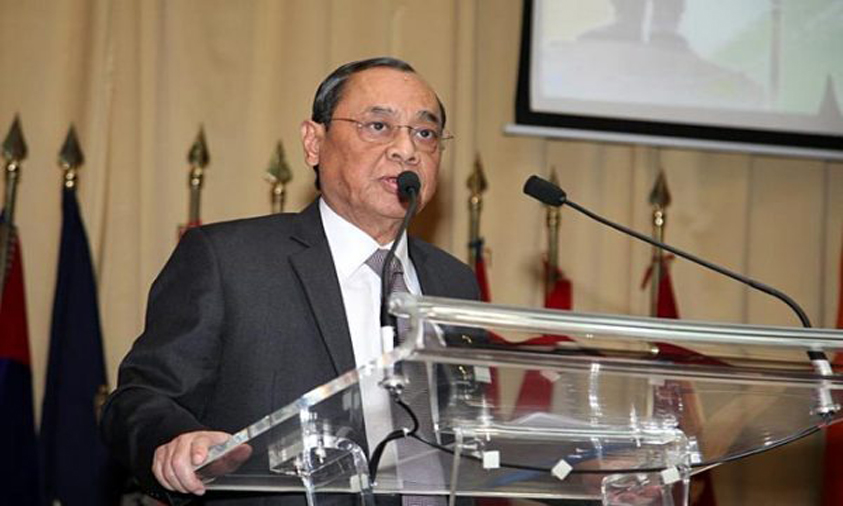New Delhi: Legal experts say the Chief Justice pronouncing the judgement on bringing the office of Chief Justice under the RTI Act is not an issue, and that it is, instead, a process connected with adjudication.
Senior advocate Rakesh Dwivedi said, “The Chief Justice can certainly be on the bench pronouncing the judgement on the petitions challenging the Delhi High Court verdict bringing the office of the Chief Justice of India within the ambit of RTI. The verdict is connected to the office and not to an individual.”
When queried on any issue of conflict of interest, Dwivedi said there is absolutely no conflict of interest.
The apex court had observed that the judiciary cannot be destroyed for the sake of transparency, though insisting that nobody wants a system of opaqueness.
The apex court bench had said, “Nobody wants to remain in the state of darkness or keep anybody in the same…but, the question which is before us is that in the name of transparency, you can’t destroy the institution.”
Dwivedi cited an example, if somebody finds issue with the apex court Collegium and then challenges it before the top court. “It would have to be heard by the judges”, added Dwivedi.
Recently, Justice Arun Mishra, a senior judge of the apex court, had refused to recuse from hearing a batch of petitions connected with the Land Acquisition Act. According to the judgment, Justice Mishra decided not to recuse in the “interest of the judiciary and the system”.
Justice Mishra was part of the verdict in February last year, which held that acquisition of the land by a government agency cannot be overturned, if there was a delay by land owners who fail to accept compensation within five years citing pending court cases.
In 2014, another verdict had ruled the land acquisition can be overturned if there is a delay in accepting the compensation awarded against the acquisition.
In March 2018, the top court had said a larger bench would look into the verdicts. On a query, comparing the two scenarios, Dwivedi said Justice Mishra was part of the judgement whereas the RTI judgement pertains to the office of Chief Justice.
Senior advocate Narendra Hooda said there is no conflict of interest in Chief Justice being part of the bench, which is scheduled to pronounce the judgement tomorrow.
“The Chief Justice being part of the bench is the process of legal adjudication of the matter”, said Hooda. He cited an example, if a district judge is removed by a full High Court bench, then to seek relief, the judge would have to go before the same High Court.
“Therefore, the current case is related to the office of Chief Justice of India and not to an individual”, said Hooda.
